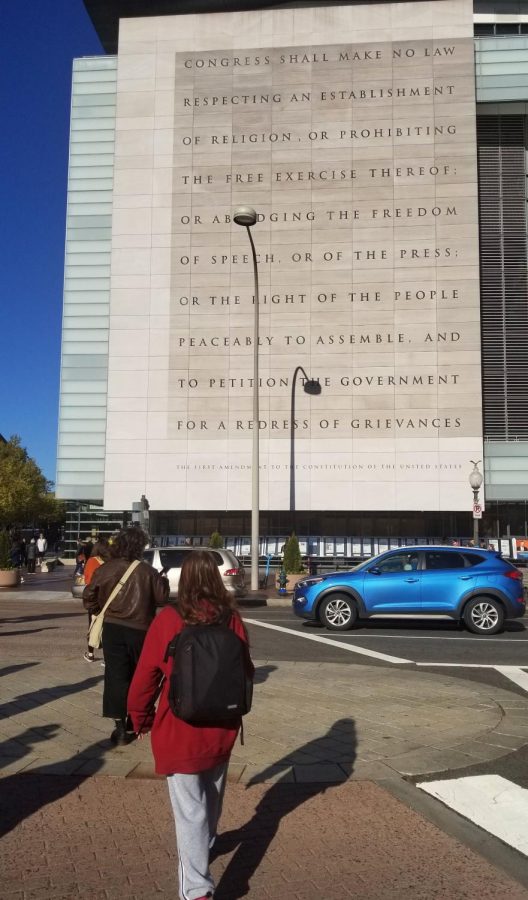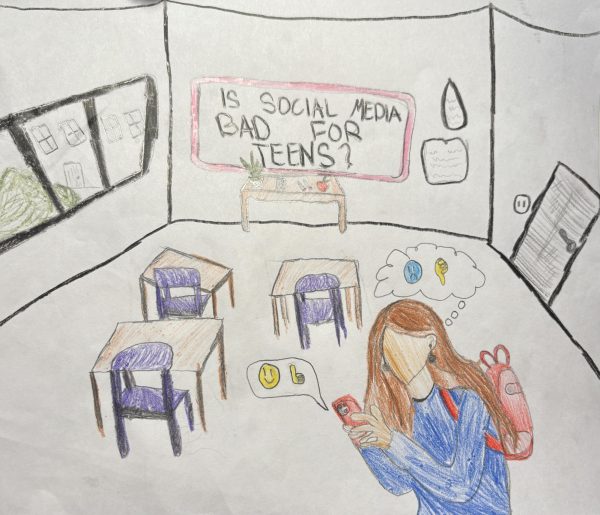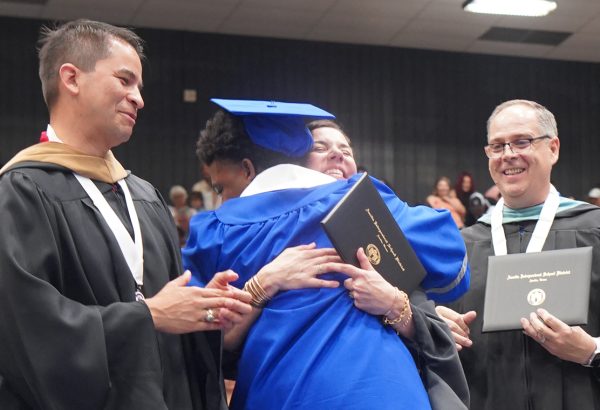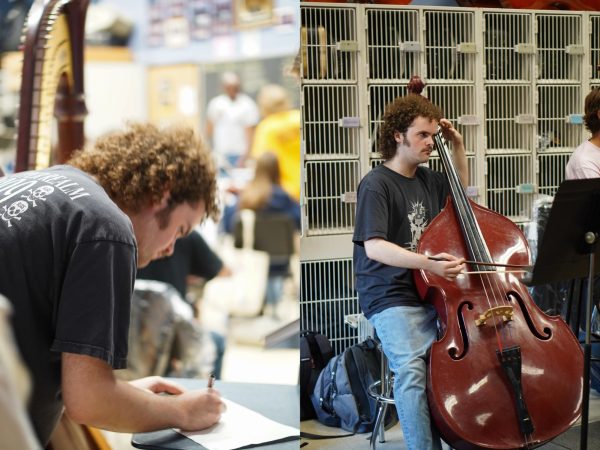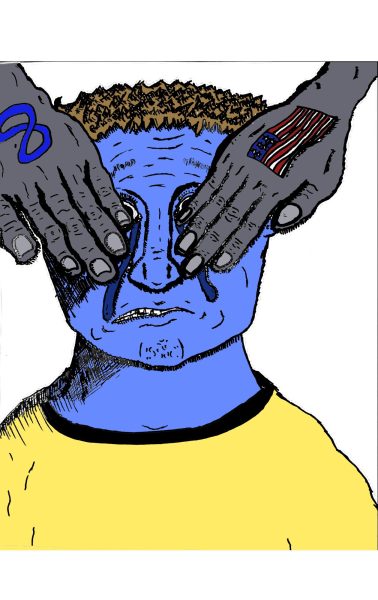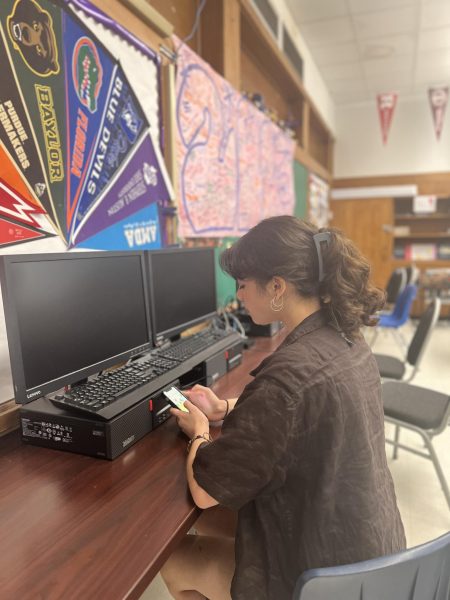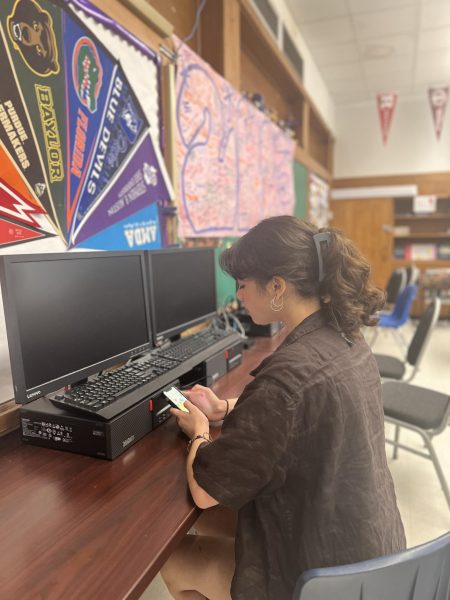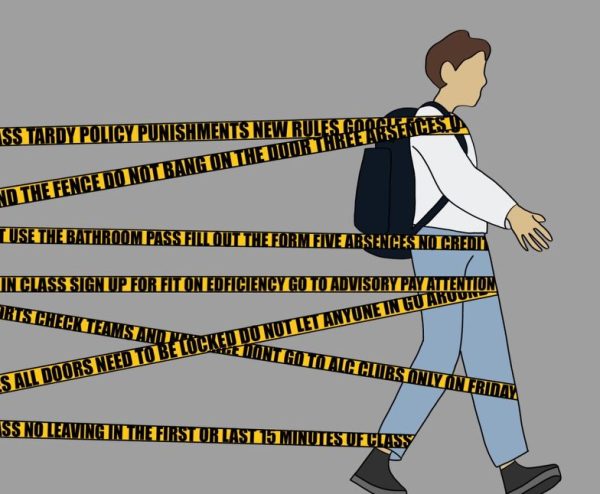This is what student press freedom looks like
While Mac is able to publish stories without censorship, many other student journalists suffer prior restraint
While in Washington DC for a national journalism conference this Thanksgiving break, Macjournalism students visited the Newseum, a museum that highlighted the importance of journalism in world history.
January 29, 2020
At a national student journalism conference in Washington D.C. this past Thanksgiving break, around a dozen Macjournalism representatives and I were asked to fill out a survey about the level of involvement out school has in the content published in our newspaper and social media accounts. A lot of the questions were surprising to me, asking if our teacher or principal ever stepped in and told us we could not publish a story because it was too controversial or because it brought an unfavorable light on the school. I completely understand that some stories cover topics that must be handled carefully, but I had no idea how many student publications were not under the protection of the freedom of the press that is written into our Constitution.
We at McCallum are lucky enough to be in a district where our website, paper and social media accounts are not censored by the school, but not every school has that same freedom.
Today is Student Press Freedom Day, a day created by the Student Press Law Center where student publications around the nation speak out about the importance of freedom of the press in public schools. We at McCallum are lucky enough to be in a district where our website, paper and social media accounts are not censored by the school, but not every school has that same freedom.
No-so coincidentally, today is also the day, 32 years ago, that the case Hazelwood School District v. Kuhlmeier, was decided. In 1988, Student journalists at Hazelwood East High School in St. Louis wrote about teen pregnancy and the effects of divorce on students for the teen issue section of their newspaper. Before the paper was published, however, the principal deleted these stories without notifying the students. At first, the students took their case to the closest district court, which ruled in favor of the school. They appealed to the Court of Appeals, which ruled in their favor, stating that the newspaper was bigger than the school itself and could only be censored under more serious circumstances. The school then appealed to the U.S Supreme Court, however, which decided that the principal had every right to control the paper. They held that the student’s freedom of speech and freedom of the press were not violated by the censorship because the paper was school-sponsored and contained stories that might not have shed a good light on the school.
We know that the desire for the truth will never die out, and therefore we believe that the same First Amendment right that is guaranteed to the mass media must apply to student journalists as well.
Even today, this court decision is one of the most influential cases on the First Amendment rights of students at school. To combat this ruling, 14 states have passed bills sponsored by a student movement called “New Voices” that limit the ability of schools to censor student publications. In 2020, these bills are being considered by 11 more states. Texas, however, is not one of them.
Even though we at McCallum are not silenced by school and district administration does not mean that the battle is won. There is more progress to be made, even for other schools across Texas, to allow students to report freely and accurately, without prior restraint of censorship.
We are student journalists who believe in reliably reporting on what matters to the student body. We do not shy away from real news, even when it comes to controversial topics. We know that the desire for the truth will never die out, and therefore we believe that the same First Amendment right that is guaranteed to the mass media must apply to student journalists as well.



